GO In The West
BADUK In Korea
IGO In Japan
WEIQI In China
© Craig R. Hutchinson, 15 June 2006
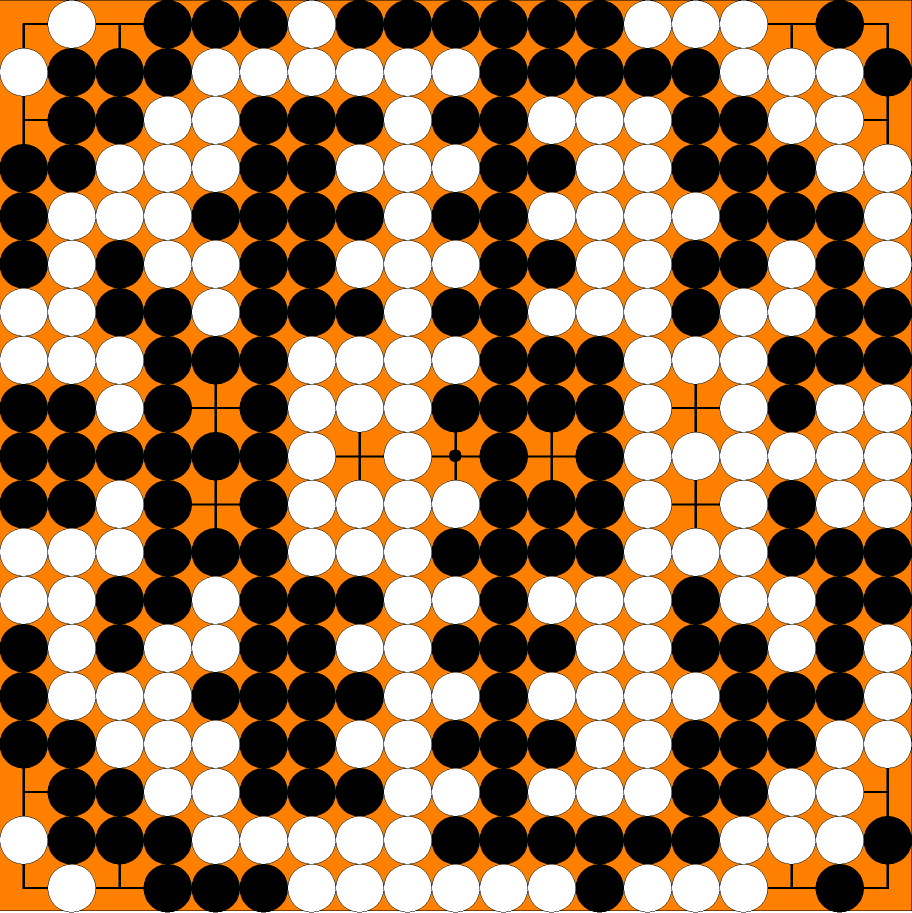
A Contest of
Life, Liberty and the Pursuit of Happiness
| RULE VARIATIONS There are variations in the rules for Go Tibetan - Mig Mang Chinese - WeiQi Korean - Baduk Japanese - Igo American - Territory Go American - Area Go New Zealand - NZ Go Taiwanese - SST Go The differences are in counting the score, permitting self capture, forbidding a repeating grid position, permitting a pass play, determining life and death positions, giving offset points and making handicap play. Here is a summary of the rule differences. RULE DIFFERENCES Area, Territory, No, Yes, Yes/Stone, Rule, Play, Star, +1/Handicap Stone | ||||||||
| Rule | M | W | B | I | TG | AG | N | S |
| Score | A | A | T | T | T | A | A | A |
| Self Capture | N | N | N | N | N | N | Y | Y |
| Repetition | N | N | R | R | N | N | N | R |
| Pass Play | Y | Y | N | N | YS | YS | Y | Y |
| Life/Death | P | P | R | R | P | P | P | P |
| Offset | 2.75 | 3.75 | 6.5 | 6.5 | 7.5 | 3.75 | 7 | 8 |
| Handicap Black | S | S | S | P | P | P | P | |
| Handicap White | +1 | +1 | ||||||
| DEFINITIONS FOR COUNTING THE SCORE B Black W White K Kills Placed in a Coffin P Number of Plays S Stones on the Grid H Handicap Stones T Territory/Liberty Points A Number of Passes M Common Liberties I Seki Stones C Captures on the Grid O Offset Compensation | ||
| GAME | BLACK SCORE | WHITE SCORE |
| Mig Mang | BS | WS |
| WeiQi | BT+BS+M/2 | WT+WS+M/2+H |
| Baduk | BT-BC-BK | WT-WC-WK |
| Igo | BT-BC-BK | WT-WC-WK |
| AGA Ter | BT-BC-BK-BA+M/2 | WT-WC-WK-WA+M/2 |
| AGA Area | BT+BS+M/2 | WT+WS+M/2+H |
| NZ Go | BT+BS+M/2 | WT+WS+M/2 |
| SST Go | BT+BS+M/2 | WT+WS+M/2
|
|
In order for the Igo Score to equal the WeiQi Score the number of Igo black and white plays must be equal. The AGA Ter and SST (Ing) rules keep the Igo score equal to the WeiQi score. To have the AGA Ter (Igo) score difference equal the AGA Area (WeiQi) score difference, a pass play stone is placed in the coffin to keep BP = WP. If black makes the last play, white adds one stone to the white coffin. White's Handicap game compensation is the number of handicap stones (or white pass plays). White even game offset compensation is 5.5, 6.5 or 7.5 points or stones. A game ends after all points are under control by occupation, or one color can not survive on a point, or a point is in a shared enclosed knotted impasse (seki) state. | ||
| WHITE OFFSET POINTS FOR PLAYING SECOND 361 points on the grid! Who gets the most points? What is white's key offset mitigating inequality (KOMI) points for playing second B and W SCORES | |||||||||||||||||||||||||||||||||||||||||||||||||||||||||||||||||||||||||||||||||||||||||||||||||||||||||||||||||||||||||||||||||||||||||||||||||||||||||||||||||||||||||
| W KOMI | 0 | .5 | 5.5 | 6.5 | 7.5 | 8 | 8.5 | 9.5
| B | W | W Profit with W KOMI
| 180.5 | 180.5 | 0 | .5 | 5.5 | 6.5 | 7.5 | 8 | 8.5 | 9.5
| 181 | 180 | -1 | -.5 | 4.5 | 5.5 | 6.5 | 7 | 7.5 | 8.5
| 181.5 | 179.5 | -2 | -1.5 | 3.5 | 4.5 | 5.5 | 6 | 6.5 | 7.5
| 182 | 179 | -3 | -2.5 | 2.5 | 3.5 | 4.5 | 5 | 5.5 | 6.5
| 182.5 | 178.5 | -4 | -3.5 | 1.5 | 2.5 | 3.5 | 4 | 4.5 | 5.5
| 183 | 178 | -5 | -4.5 | .5 | 1.5 | 2.5 | 3 | 3.5 | 4.5
| 183.5 | 177.5 | -6 | -5.5 | -.5 | .5 | 1.5 | 2 | 2.5 | 3.5
| 184 | 177 | -7 | -6.5 | -1.5 | -.5 | .5 | 1 | 1.5 | 2.5
| 184.5 | 176.5 | -8 | -7.5 | -2.5 | -1.5 | -.5 | 0 | .5 | 1.5
| 185 | 176 | -9 | -8.5 | -3.5 | -2.5 | -1.5 | -1 | -.5 | .5
| 185.5 | 175.5 | -10 | -9.5 | -4.5 | -3.5 | -2.5 | -2 | -1.5 | -.5
| 186 | 175 | -11 | -10.5 | -5.5 | -4.5 | -3.5 | -3 | -2.5 | -1.5
| WOP/2 | .25 | 2.75 | 3.25 | 3.75 | 4 | 4.25 | 4.75
| B 180.5 + WOP/2 | 180.75 | 183.25 | 183.75 | 184.25 | 184.5 | 184.75 | 185.25
| W 180.5 - WOP/2 | 180.25 | 177.75 | 177.25 | 176.75 | 176.5 | 176.25 | 175.75
| | ||||||||||||||
CALCULATION FORMULAS
On a 19x19 line grid there are a total of 361 points.
TOTAL POINTS (361)=BS+BT+M/2+WS+WT+M/2
DIFF=BS+BT+M/2-(WS+WT+M/2)=361-2(WT+WS+M/2)
BS = BP-BK-BC-BA and WS = WP-WK-WC-WA
DIFF=BT+BP-BK-BC-BA-(WT+WP-WK-WC-WA)
IF BP = WP and BA = WA
DIFF=BT-BK-BC-(WT-WK-WC)
BP+BT-BC-BK+M/2+WP+WT-WC-WK+M/2=361
BS+BT+M/2+WS+WT+M/2 = 361
BP+BT-BC-BK+M/2+WP+WT-WC-WK+M/2
= BS+BT+M/2+WS+WT+M/2
BP+BT-BC-BK+WP+WT-WC-WK = BS+BT+WS+WT
BP+BT-BC-BK+WP+WT-WC-WK-2(WS+WT)
= BS+BT-(WS+WT)
BP+BT-BC-BK+WP-WT-WC-WK-2WS
= BS+BT-(WS+WT)
(BT-BC-BK)-(-BP-WP+WT+WC+WK+2WS)
= BS+BT-(WS+WT)
(BT-BC-BK)-(-BP-WP+WT+WC+WK+2(WP-WK-WC))
= BS+BT-(WS+WT)
(BT-BC-BK)-(-BP+WP+WT-WC-WK) =BS+BT-(WS+WT)
IF BP = WP
(BT-BC-BK)-(WT-WC-WK) = BS+BT-(WS+WT)
BS+BT+M/2+WS+WT+M/2 = 361
BS+BT+M/2-(WS+WT+M/2) = 361-2(WS +WT + M/2)
(BS+BT+M/2-(WS+WT+M/2))/2 = 361/2-(WS+WT+M/2)
= 180.5-(WS+WT+M/2)
OTHER VARIATIONS
1. Number of Players
More players can play with more colored stones. For example:
Third Player - Red,
Fourth Player - Blue,
Fifth Player - Yellow,
and Sixth Player - Green.
2. Pair Go
Four players play,
two pairing with black and two pairing with white.
No consultation between paired couples.
3. Blind Go
The players can play blindly back to back
with a third person keeping them informed of illegal plays.
4. Board Sizes
The 9x9, 13x13, 17x17, and 21x21 are the common sizes.
Board size can also vary with MxN. For example:
1x1, 1x2, 1x3, 1xN; 2x2, 2x3, 2x4, 2xN; 3x3, 3x4, 3x5, 3xN;
4x4, 4x5, 4x6, 4xN; 5x5, 5x6, 5x7, 5xN; etc..
5. Board Shape
The shape of the board can vary.
The board can have holes in it;
be round;
be on
a tube,
a doughnut,
or a ball;
be three or four dimensional.
6. Board Points
The number of adjacent points (intersections) can vary.
For example the 3rd board below has three adjacent points,
and the 9th board below has five adjacent points.
BOARD VARIATIONS

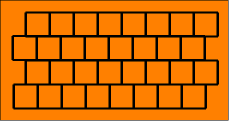
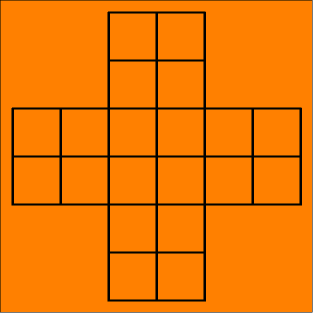
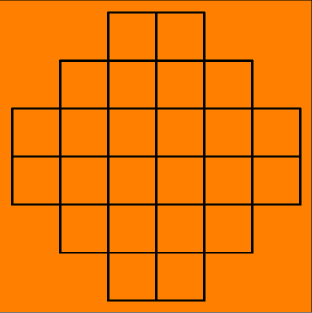
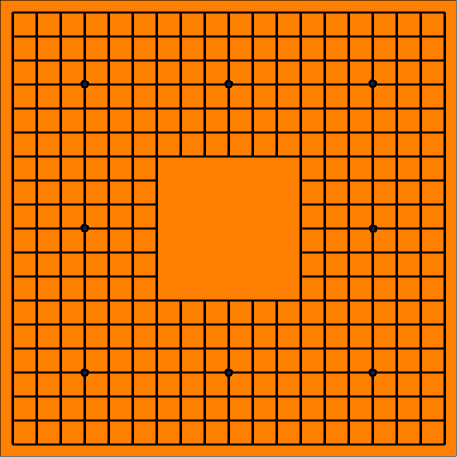
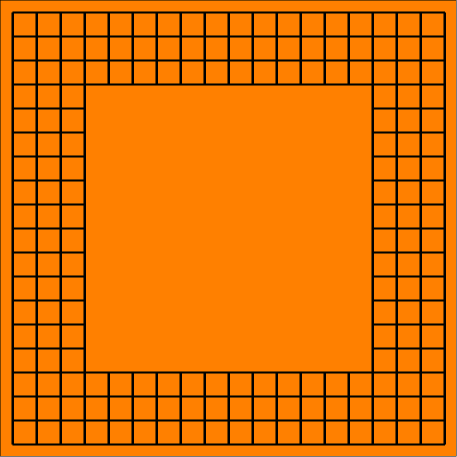
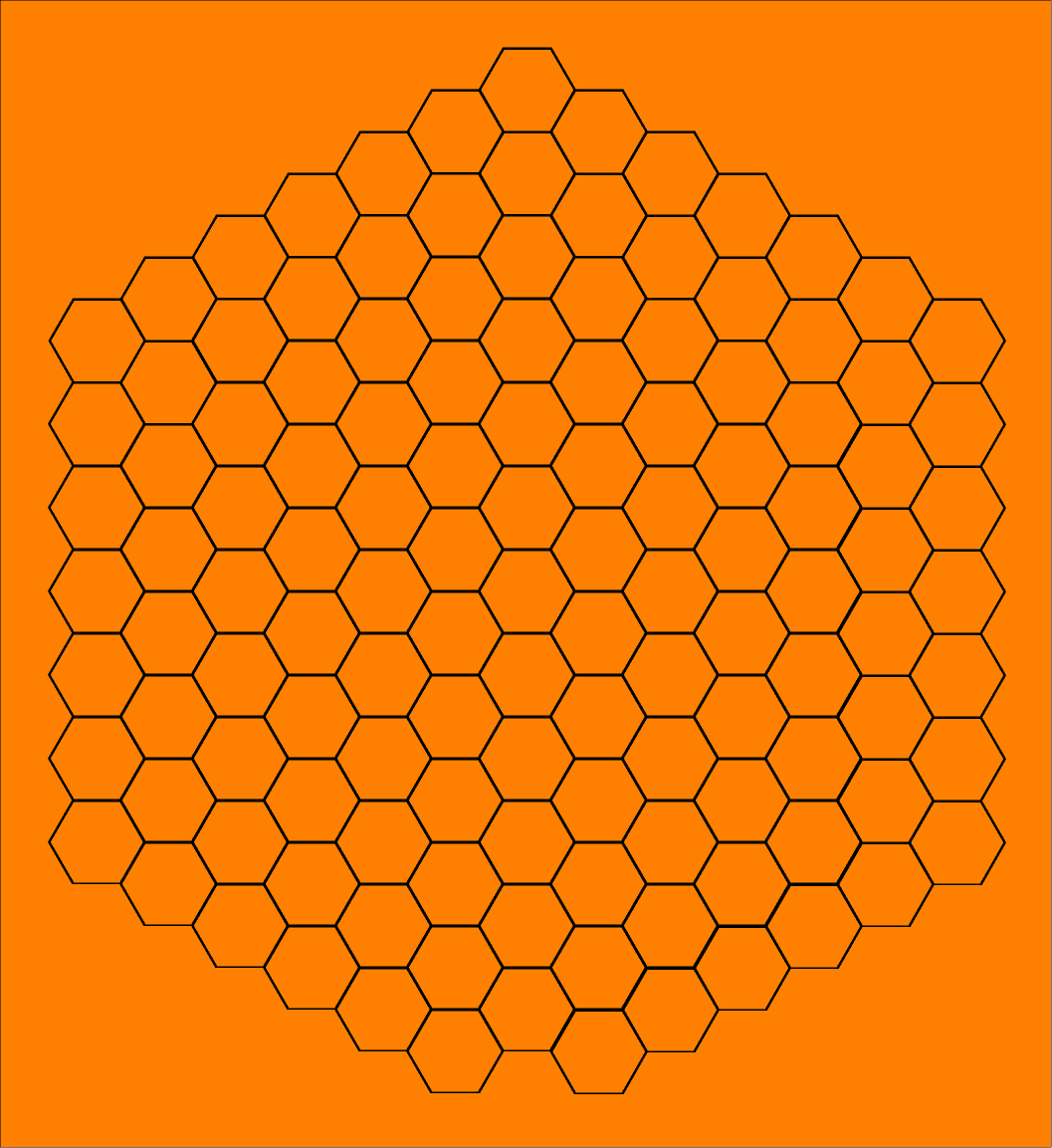
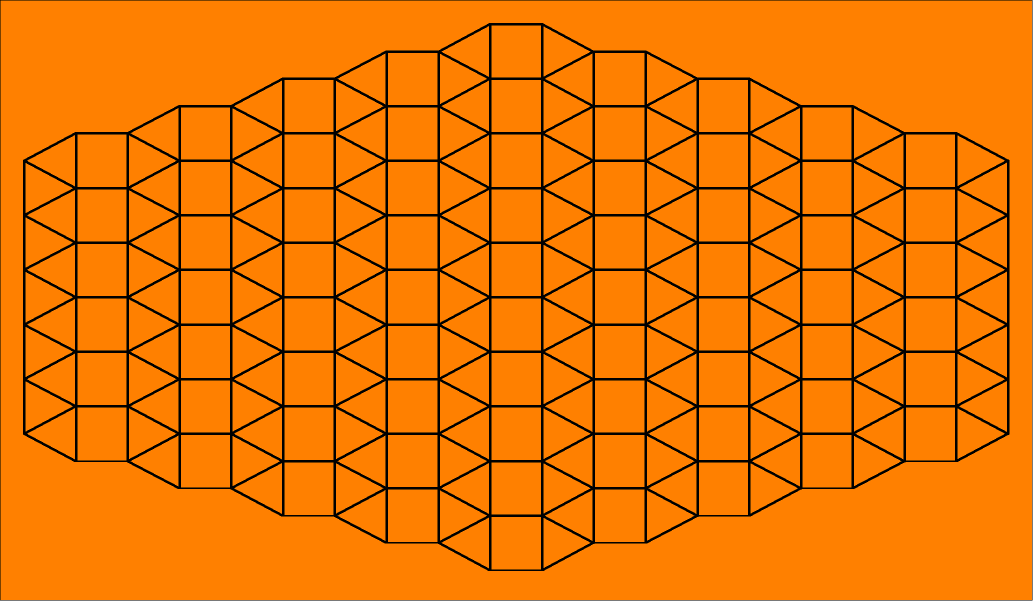
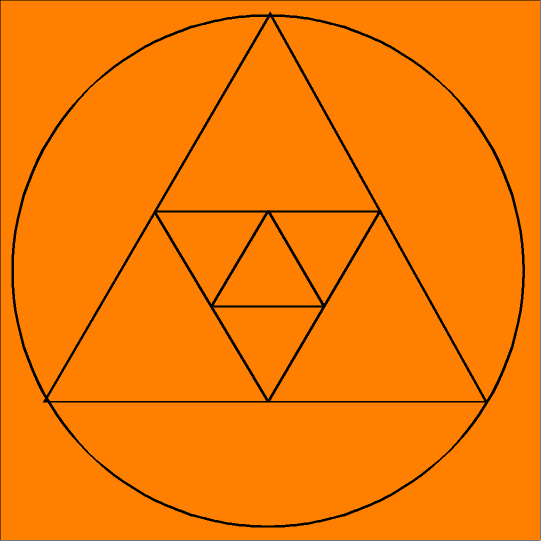
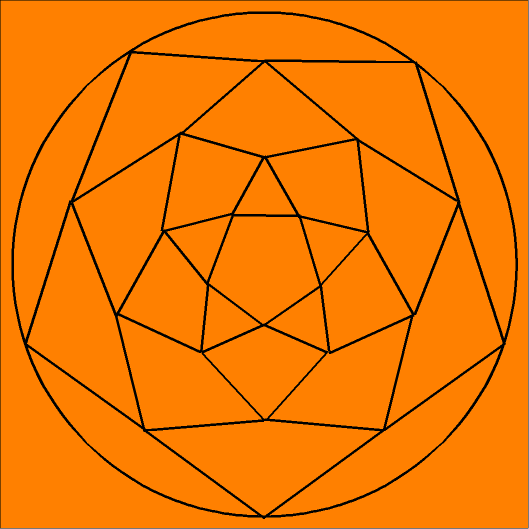
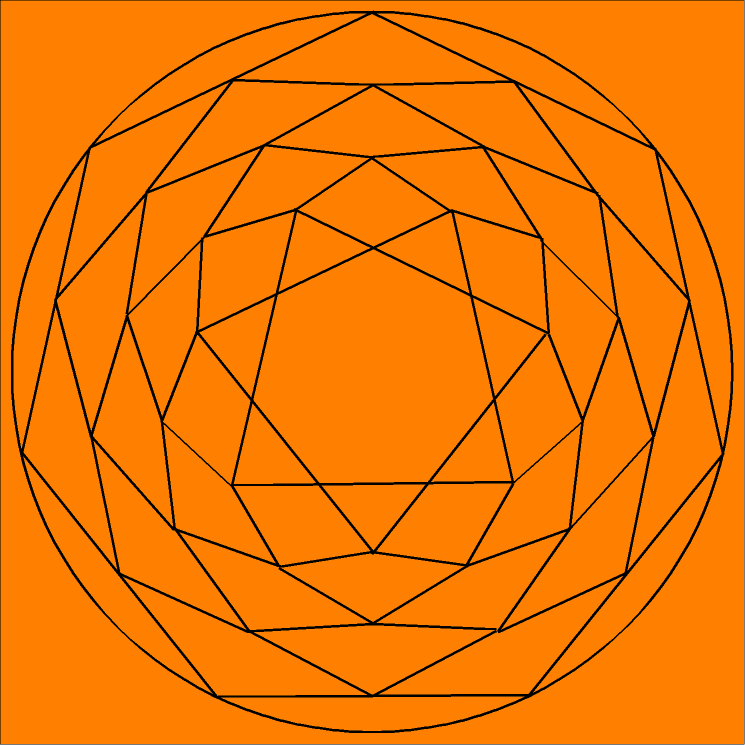
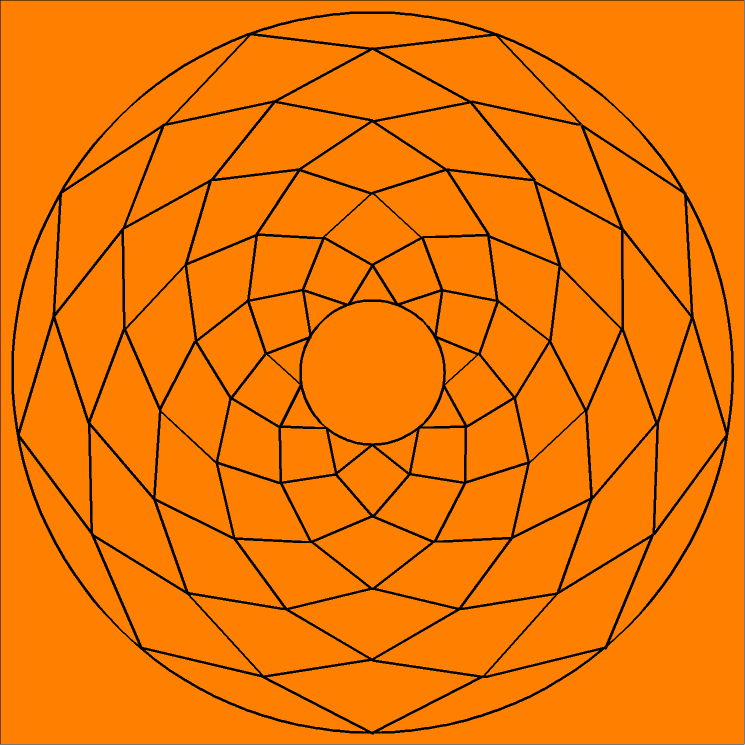
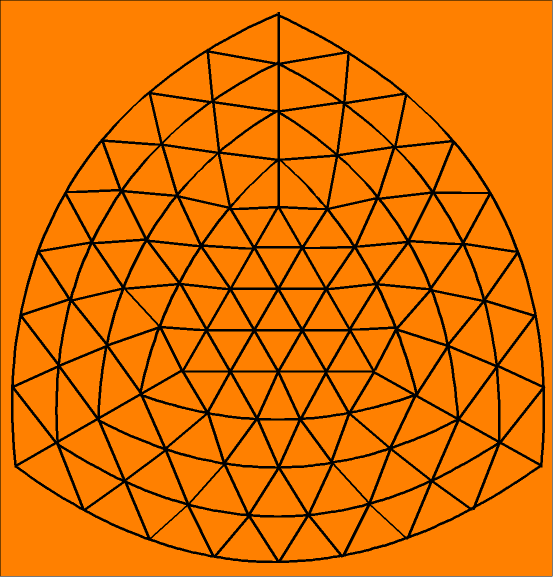
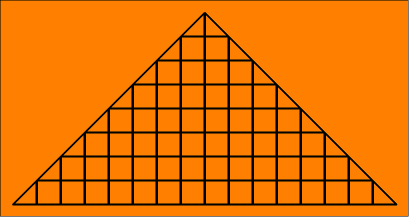
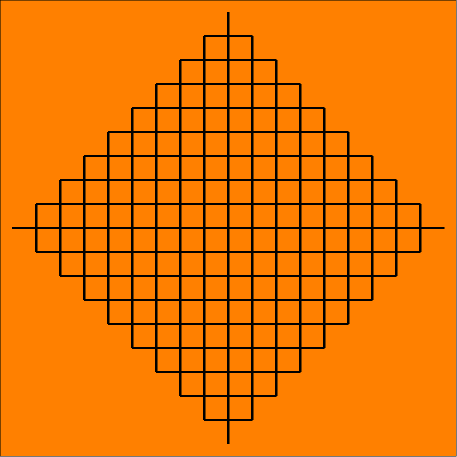
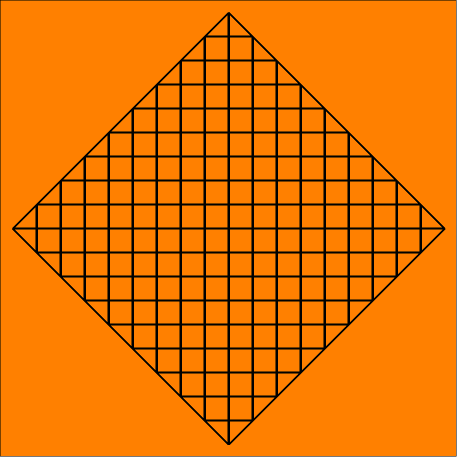
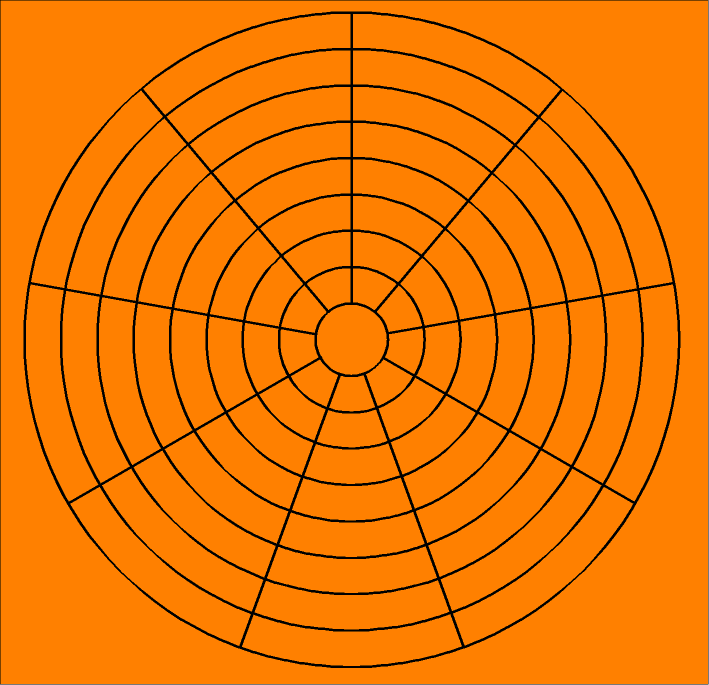
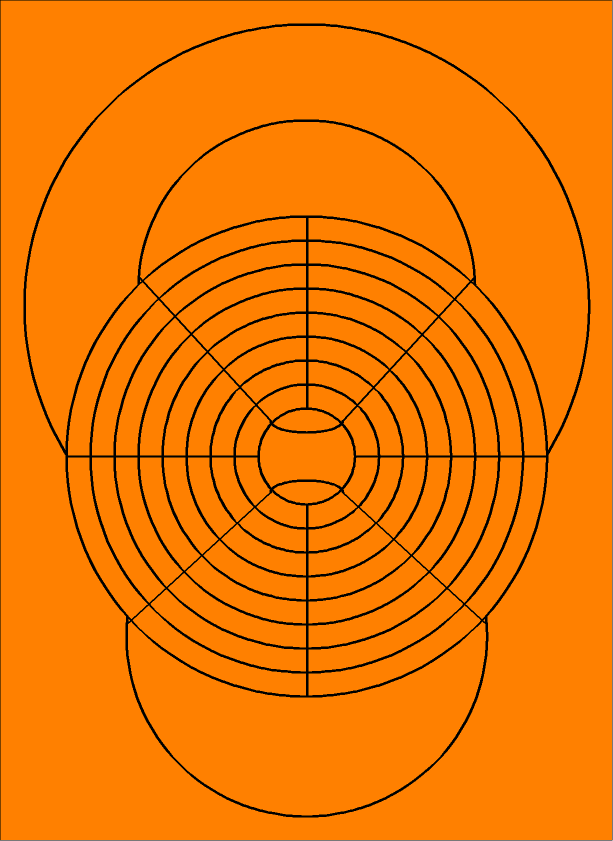
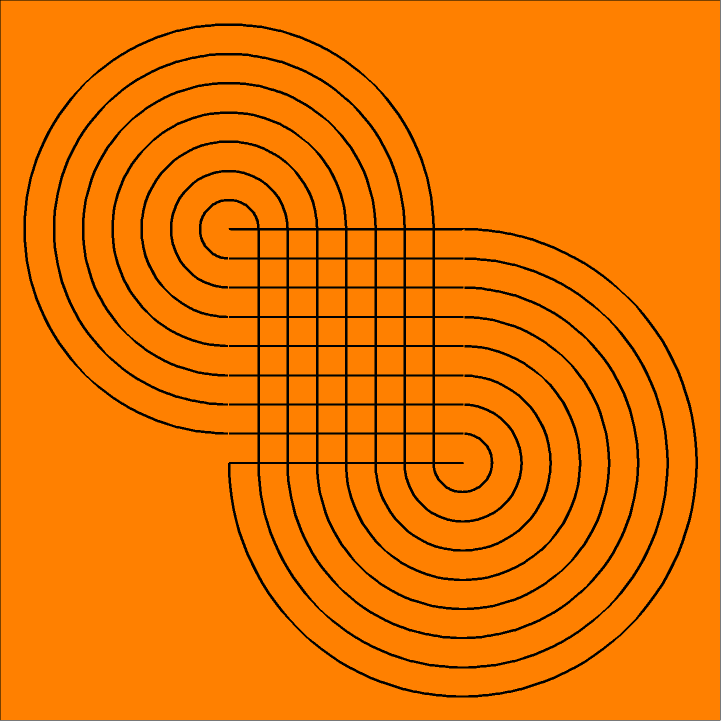
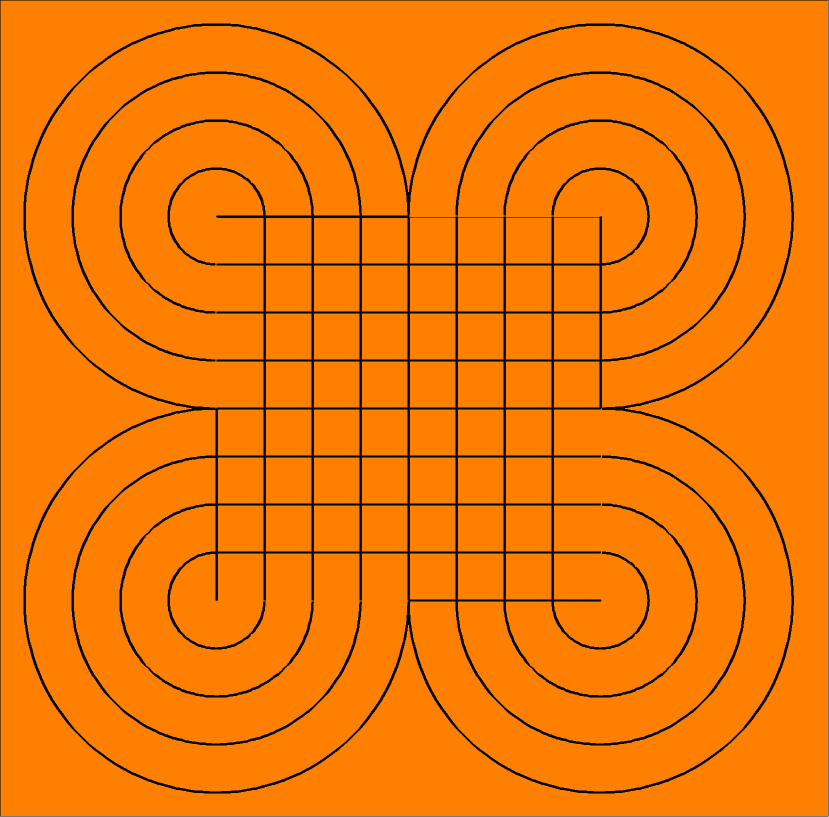
MORE
INFORMATION
For more information about
variations, players, and/or clubs in your area,
or playing on the Internet, contact:
The American Go Association
PO Box 397, Old Chelsea Station
New York City, NY 10113-0397
E-mail: membership@usgo.org
Net: www.usgo.org
or contact Hutch
Phone: 703-698-9811
E-mail: crhutch@erols.com
Net: http://users.erols.com/crhutch/go.html